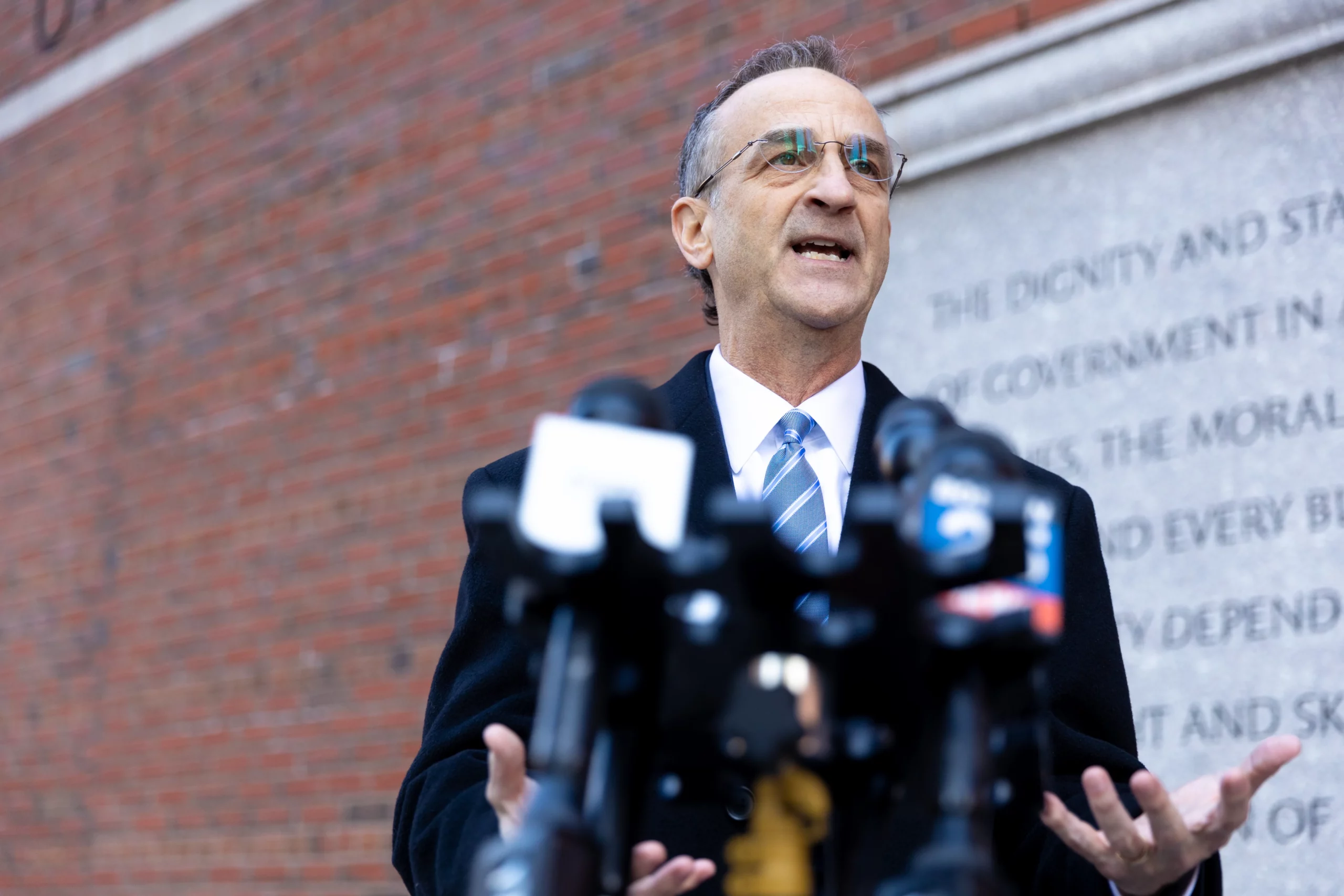
A Massachusetts middle school student petitioned the Supreme Court on Wednesday after his school barred him from wearing T-shirts that expressed his views on gender.
In 2023, Liam Morrison, a seventh grader at Nichols Middle School in Middleborough at the time, wore a shirt to class that read “There are only two genders” after the school encouraged discussions about gender identity, which included promoting students to wear LGBT-themed clothing. School officials asked Morrison to stop wearing his shirt to class because it was offensive to certain students. He refused and was forced to miss class, prompting a costly legal battle for him and his family.

After the school restricted the clothes that the student could wear, Morrison began to wear a protest shirt that read “There are [censored] genders,” but was again told he could not wear it.
Alliance Defending Freedom, a pro-free speech and religious liberty group representing the student, argued that the school’s actions violated his First Amendment rights. The U.S. Court of Appeals for the 1st Circuit upheld the school’s decision in June, prompting ADF to seek a Supreme Court review.
ADF Senior Counsel David Cortman contended that the school had infringed on the student’s right to express a differing viewpoint. He emphasized that public schools cannot restrict speech simply because it does not align with their views on controversial topics such as gender identity.

“This case isn’t about T-shirts; it’s about a public school telling a middle-schooler that he isn’t allowed to express a view that differs from their own. The school actively promotes its view about gender through posters and ‘Pride’ events, and it encourages students to wear clothing with messages on the same topic—so long as that clothing expresses the school’s preferred views on the subject,” Cortman said in a press release.
A federal district court in Massachusetts and the circuit court applied a “novel legal standard and analysis” to a case known as Tinker v. Des Moines Independent Community School District, according to ADF’s petition to the high court.
The Tinker case was a landmark decision in 1969 by former Chief Justice Earl Warren’s court, recognizing the First Amendment rights of students in public schools.
“This Court’s review is urgently needed to reaffirm that Tinker protects ‘unpopular ideas,’ public schools can’t establish what is ‘orthodox in … matters of opinion,’ and students aren’t ‘confined to the expression of … sentiments that are officially approved,’” according to the petition.
The Supreme Court has, in recent years, waded into more thorny disputes surrounding heterosexual and LGBT content and messaging disputes.
By a 6-3 vote last year in 303 Creative v. Elenis, the justices sided with a Colorado web designer who opposed same-sex marriage. She challenged the state’s public accommodation law, claiming that it forced her to create messages she opposed. This case was also represented by ADF.
Later this term, the justices are slated to hear oral arguments in a case known as Ohio v. Marlean Ames, which involves a straight woman who sued the Ohio Department of Youth Services, her employer of 20 years, claiming she was denied promotions and demoted because of her sexual orientation.
It is not immediately clear when the Supreme Court will respond to the case petitioned Wednesday, L.M. v. Town of Middleborough.
CLICK HERE TO READ MORE FROM THE WASHINGTON EXAMINER
It would take four justices to vote in favor of hearing the student’s case for oral arguments.
A representative for the school was not available for comment.







